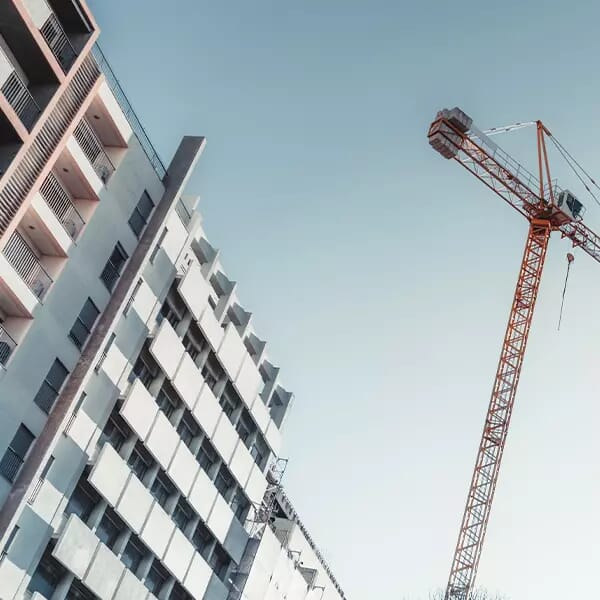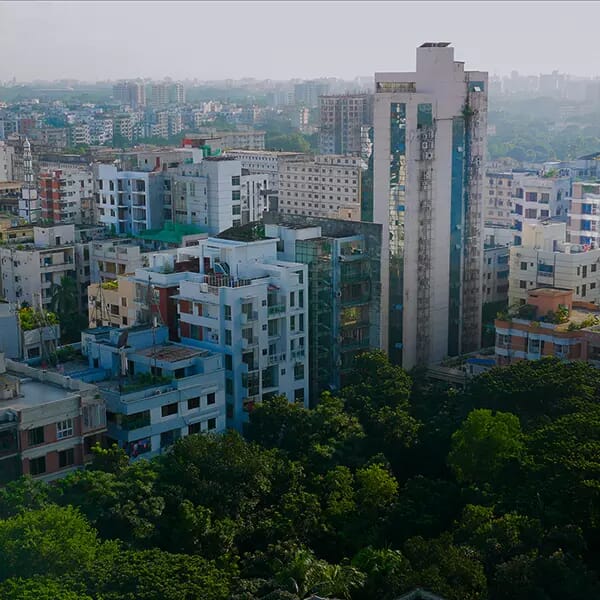 Credit: Wang An Qi / Shutterstock
Credit: Wang An Qi / ShutterstockThe Role of ESG in Indian Real Estate
ESG provides a formal strategy to address specific Environmental, Social and Governance related non- financial parameters in essence, recognising financial relevance of various non-financial elements which impact the business in various ways. While this was always a part of businesses, it is now getting formalised.
The need for ESG has arisen out of the issues of climate change, expectations of the investors and lenders, stringent regulatory requirements. Businesses are beginning to formalise ESG related initiatives plans on account of tangible, regulatory and reputational risks.
There has been a tremendous rise in the capital allocation towards responsible investment. In the last year, 38% of the global investment flows have been towards ESG commitment. PwC’s Responsible Investment Survey, conducted in 2019, indicated that higher than three-fourths of the Global LPs have made a public commitment to include ESG considerations when investing.
 Credit: Liufuyu / Envato Elements
Credit: Liufuyu / Envato Elements
ESG in India
Regulatory framework
The regulators have been pushing it hard to have a net zero infrastructure set-up in India. For instance, the Bureau of Energy Efficiency (‘BEE’) has launched Energy Conservation Building Code for new commercial buildings and Eco Niwas Samhita for new residential buildings in India. Further, BEE has implemented star rating for existing projects. BEE has launched a program in 2019 for providing technical assistance to 100 buildings to boost net / nearly net zero buildings.
The top 1000 companies are required to file a Business Responsibility and Sustainability Report (‘BRSR’) reporting the non-financial parameters and sustainability of the business. Further a simplified version of BRSR is proposed to be introduced for voluntary filing by others.
Developments
With an increase in the formation of a dedicated responsible investment professional / team (from 27% in 2016 to 35% in 2019), launch of dedicated ESG funds, rise in ESG themed mutual funds, investors and lenders strongly pushing for ESG mandates and stringent regulatory compliance and reporting requirements, the situation is already changing in India.
Several Indian companies have joined hands with the Government to take India towards the path of lower greenhouse gas emissions, aligning themselves with India’s commitment under the Paris Agreement. Independently, corporates in India are also committing towards the net zero ambition before mid-century.
Regardless, it is pertinent that currently more emphasis is placed on implementing rather than on reporting. While there are some market leaders who are stressing on the importance of ESG initiatives and are highlighting the future course of action and the impact of it all, there is lack of ambition in the others.
 Credit: Leungchopan / Envato Elements
Credit: Leungchopan / Envato Elements
Opportunities in the Real Estate sector
The European countries, for instance, Germany has recorded ~ 33% of its carbon emission by the real estate sector. A survey by PwC Luxembourg indicated that over 85% of the institutional investors, specifically insurance companies prefer to invest in ESG compliant products going forward.
With substantial carbon emissions by the real estate sector, globally, investors and their stakeholders are increasing the use of ESG parameters to screen investments, resulting in private equity real estate investment managers placing greater focus on measuring their portfolios against environmental sustainability benchmarks ("environment" being the most prominent component of ESG in the real estate space).
While India has been on track with the commitment under the Paris agreement in terms of reducing the energy intensity and increasing the use of renewable energy, India is yet to declare the net-zero ambition. However, this commitment will come much faster than expectations now resulting in more opportunities for businesses to be ESG compliant.
Cost of adopting ESG
With the regulatory framework and requirements, the real estate developers are being pushed towards developing net zero assets, using sustainable means and ensuring longevity of the asset being developed.
Regardless, adoption of ESG policies offers a multitude of benefits to businesses and is making greater sense from a business perspective as well.
Being ESG compliant makes a lot of economic sense given that the tenants are also seeing value in properties that are energy efficient and sustainable. Businesses can market their product as net zero ambition structure to the investors and stakeholders. Unless businesses move to lay out an ESG framework today and work towards net zero ambition, there is a good chance that they could be out of business soon.
While for the developed nations, to become ESG compliant would require a refurbishment of the existing structures, for India, this is a huge opportunity and an advantage that ESG parameters can be brought into consideration at the time of planning and construction, thus saving the higher cost incurred as a result of refurbishing.
Funds
With upwards of 75% of the investors placing emphasis on ESG parameters, having an ESG policy in place for businesses has seen a shift from ‘good to have’ to ‘must have’. Similarly, financial institutions globally are giving more importance to ESG and other sustainability policy framework and initiatives by the developers.
Funds, both debt and equity, have seen a movement in favour of borrowers who have a better ESG framework in place, even in India. The lenders are proposing incentives by way of lower interest rates / better structuring of loan repayments to real estate developers who commit to reduce energy consumption by at least 25% to have cleaner and greener buildings.
There is a lot of money chasing the Funds that are investing in energy efficient, sustainability and green buildings which are also taking efforts from a social and governance perspective.
ESG - A flavour of the season?
Given the global initiatives and agreements, regulatory requirements and the need of the hour, ESG can no longer be said to be a flavour of the season. It is set to become mandatory at the level of each stakeholder.
Gradually, ESG is shifting from a CSR initiative to a key component in decision making and is getting integrated with the developer and investor goals. The responsibility of the real estate developers to comply with ESG is no longer limited towards the regulators, investors and lenders. The tenants would also expect a certain level of energy efficiency and sustainability given their commitment towards the net zero ambition.
Large developers have been working on having an ESG policy framework in place, in line with the global standards and have taken proactive measures on reporting the key initiatives and future course of action to their stakeholders.
While the environmental factors are in rage since the last few years, specifically from the social and governance perspective, for over a decade now, companies are gradually becoming more responsible and attempting to better the lives of the employees in general and especially the blue-collar employees.
To sum it up, with various checks in place, India is on the track to becoming sustainable and move towards the global net zero ambition.
This is a summary report of our last GRI eMeeting: The Role of ESG in Indian Real Estate, co-hosted by PwC.
PwC
At PwC, our purpose is to build trust in society and solve important problems. We’re a network of firms in 158 countries with more than 2,36,000 people who are committed to delivering quality in assurance, advisory and tax services. Find out more and tell us what matters to you by visiting us at www.pwc.com.
In India, PwC has offices in Ahmedabad, Bengaluru, Chennai, Delhi NCR, Hyderabad, Kolkata, Mumbai and Pune. For more information about PwC India’s service offerings, visit www.pwc.com/in.
PwC refers to the PwC International network and/or one or more of its member firms, each of which is a separate, independent and distinct legal entity. Please see www.pwc.com/structure for further details.
Our Office
India - Mumbai
252 Veer Savarkar Marg,
Next to Mayor’s Bungalow
Shivaji Park, Dadar
Mumbai 400 028



